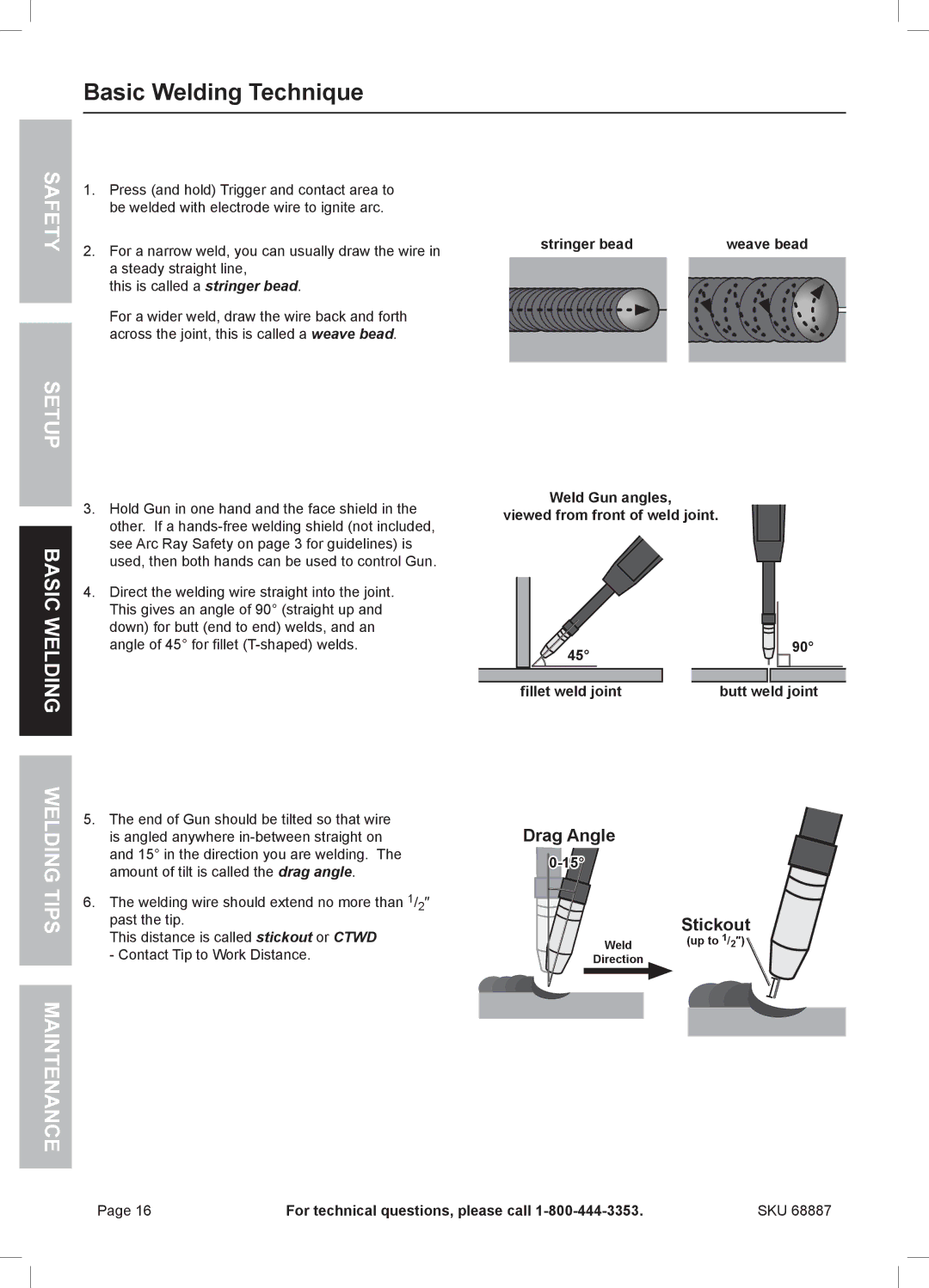
Basic Welding Technique
SAFETY | 1. | Press (and hold) Trigger and contact area to |
| ||
|
| be welded with electrode wire to ignite arc. |
| 2. | For a narrow weld, you can usually draw the wire in |
|
| a steady straight line, |
|
| this is called a stringer bead. |
|
| For a wider weld, draw the wire back and forth |
|
| |
|
| across the joint, this is called a weave bead. |
SETUP |
|
|
| 3. | Hold Gun in one hand and the face shield in the |
| ||
|
| other. If a |
|
| |
BASIC |
| see Arc Ray Safety on page 3 for guidelines) is |
| used, then both hands can be used to control Gun. | |
|
| |
| 4. | Direct the welding wire straight into the joint. |
WELDING |
| This gives an angle of 90° (straight up and |
| down) for butt (end to end) welds, and an | |
| angle of 45° for fillet | |
|
| |
|
|
|
stringer bead |
| weave bead |
|
|
|
|
|
|
|
|
|
|
|
|
Weld Gun angles,
viewed from front of weld joint.
45° | 90° |
|
fillet weld joint | butt weld joint |
WELDING TIPS
MAINTENANCE
5.The end of Gun should be tilted so that wire is angled anywhere in‑between straight on and 15° in the direction you are welding. The amount of tilt is called the drag angle.
6.The welding wire should extend no more than 1/2″ past the tip.
This distance is called stickout or CTWD - Contact Tip to Work Distance.
Drag Angle
| Stickout |
Weld | (up to 1/2″) |
Direction |
|
|
|
Page 16 | For technical questions, please call | SKU 68887 |
